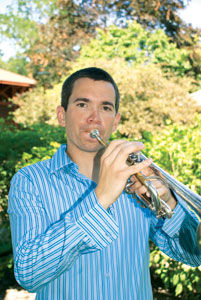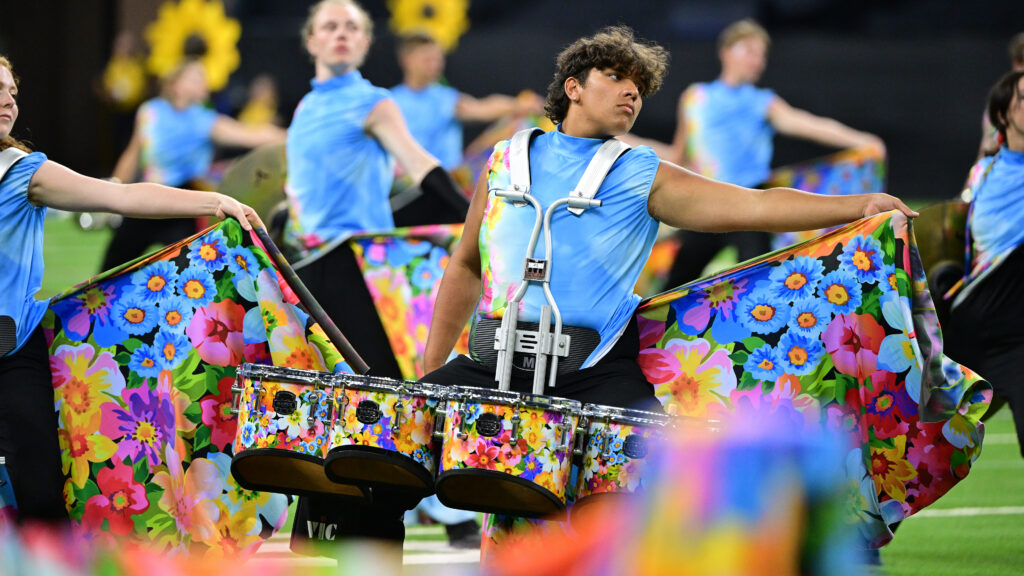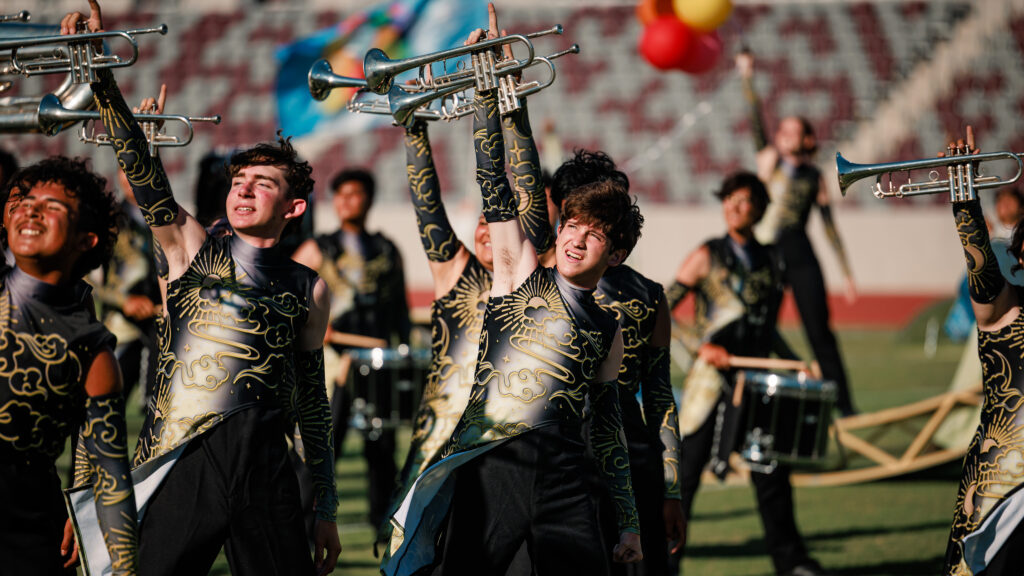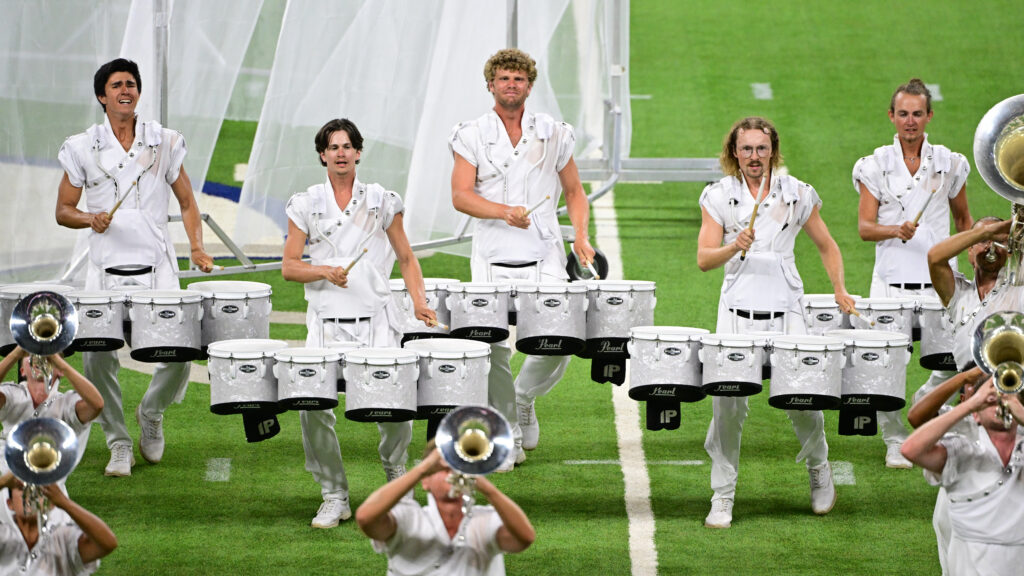Christopher Martin has truly enjoyed a life in drum corps. Now the principal trumpet of the Chicago Symphony Orchestra, Martin grew up in the Spirit organization and marched there in 1993 (his father, Freddy, is a true drum corps legend — he founded Spirit and is a recently inducted member of the DCI Hall of Fame).
The following is an interview excerpt as published in the September, 2007 issue of “The Instrumentalist.” To buy the issue and read the entire article, e-mail [email protected].
On Top of the World
An Interview with Chris Martin
By Thomas Bough
Christopher Martin won the dream job of principal trumpet of the Chicago Symphony Orchestra in 2005. He had previously been principal trumpet of the Atlanta Symphony Orchestra and grew up in a musical family in Marietta, Ga. His father directs bands at a Georgia private school and his mother sings with the Atlanta Symphony Orchestra. Even at the top of the trumpet world, Martin vividly recalls the dedicated efforts that helped develop his skills.
What is your daily routine?

Chris Martin
I get up earlier than ever and treat morning warm-ups as almost a religious obligation. I try to complete working on the fundamentals by 9 a.m. to have time to rest before the morning rehearsal, which runs from 10 to noon. Most concerts are in the evening, which leaves time to practice during the afternoon and recover before the concert. I usually practice three times each day.
I have always been disciplined about practicing. Because I make a living as a brass player, there is no room for a lazy or haphazard approach with different concerts every week. My practice routine changes to meet the orchestra’s schedule. I plan the coming month on the basis of the pieces we will perform, with daily adjustments to cover what needs the most work and how my chops feel.
As demanding as the job often is, there are periodic easy weeks. A Haydn symphony has a less taxing trumpet part, and I spent that week working on the Brandenburg Concerto. Another week we will play Bruckner 7, and I will have to be very careful and practice less.
All of my brass teachers, going back to my dad, stressed versatility. To play music professionally, you have to master all of the musical styles and accurately perform whatever is placed on the stand. Before deciding to pursue an orchestral career, I prepared to make a living by playing in every ensemble possible – concert bands, big band, brass ensembles, and new music groups. The variety of styles helped prepare me for the CSO.
* * *
How did playing in a drum corps contribute to becoming a professional player?
Some of the most intense performances of my life were in drum corps. The experience was important because you played every day and spent so much time working toward a goal. There was no choice but to stick it out until the end. I devoted hours and hours every day toward reaching this goal and that was a great lesson for me. It wasn’t that the musical experience itself was more powerful than playing at Eastman, but the complete commitment to a drum corps goal was essential.
How do you respond to college brass players who fear that playing in too many ensembles, particularly marching band, will harm their chops?
During college I played in every ensemble I possibly could plus drum corps. In the year that I marched with a corps, I took a week off in the middle of the season to attend a chamber music camp given by Phil Smith and Joe Alessi. In the drum corps I played for two months straight on a G bugle but still found time each day to practice my C, B flat and E flat trumpets. Good playing is good playing regardless of where you get it. Marching band and drum corps were perceived as wilder activities in past decades, but they are much different now. The skill level of students and teachers is higher, and the competition for spots in the top corps is great. Many professional brass players teach drum corps, and the level of instruction in these groups is good.
©2007 The Instrumentalist Publishing Company. No portions of the words or photos may be reproduced without written permission.





